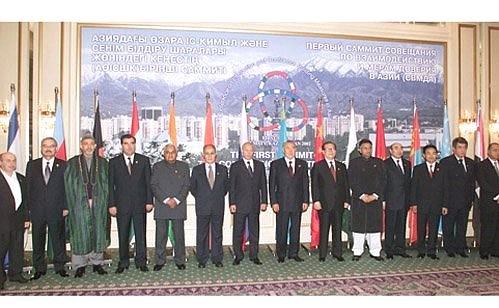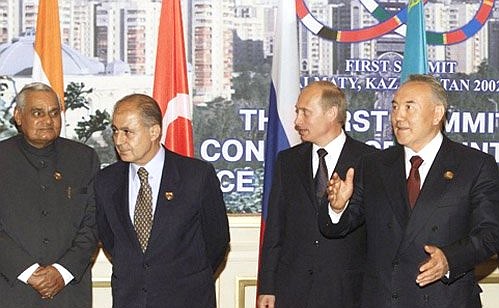The summit gathered the heads of state and governments of 16 countries: Russia, China, Azerbaijan, Afghanistan, Egypt, Israel, India, Iran, Kazakhstan, Kyrgyzstan, Mongolia, Pakistan, Tajikistan, Turkey, and Uzbekistan, as well as a representative of the Palestinian National Autonomy. Observers from the US, Japan, Australia, Vietnam, Indonesia, Malaysia, Ukraine and South Korea, as well as representatives of the UN, OSCE, and the League of Arab States were also present.
The issues of settling conflicts in Asia and strengthening the international and regional security were put high on the agenda of the meeting.
The forum ended with the adoption of final agreements, including the Almaty Act and Declaration on Fighting Terrorism and the Promotion of Dialogue between Civilisations.
By signing the Almaty Act, which formalised the emergence of the CICA, an international institution, the heads of state showed their intention to form a common and integral security space in Asia, and said their activities are targeted at promoting cooperation by elaborating multi-faceted approaches to securing peace, safety and stability in the region.
The participants in the summit called upon all members of the CICA, who were involved in conflicts or territorial disputes, to find peaceful settlements in accordance with the principles stipulated in the UN charter.
In the Declaration of Fighting Terrorism the summit participants condemned all kinds and manifestations of terrorism, and planned to make every possible effort to prevent the fight against terrorism from turning into a war of cultures, religions and peoples. The CICA members consider that stepping up efforts to fight poverty, unemployment, illiteracy, extremism, intolerance, rooted hatred and all forms of discrimination is the high-priority objective that faces the international community.


